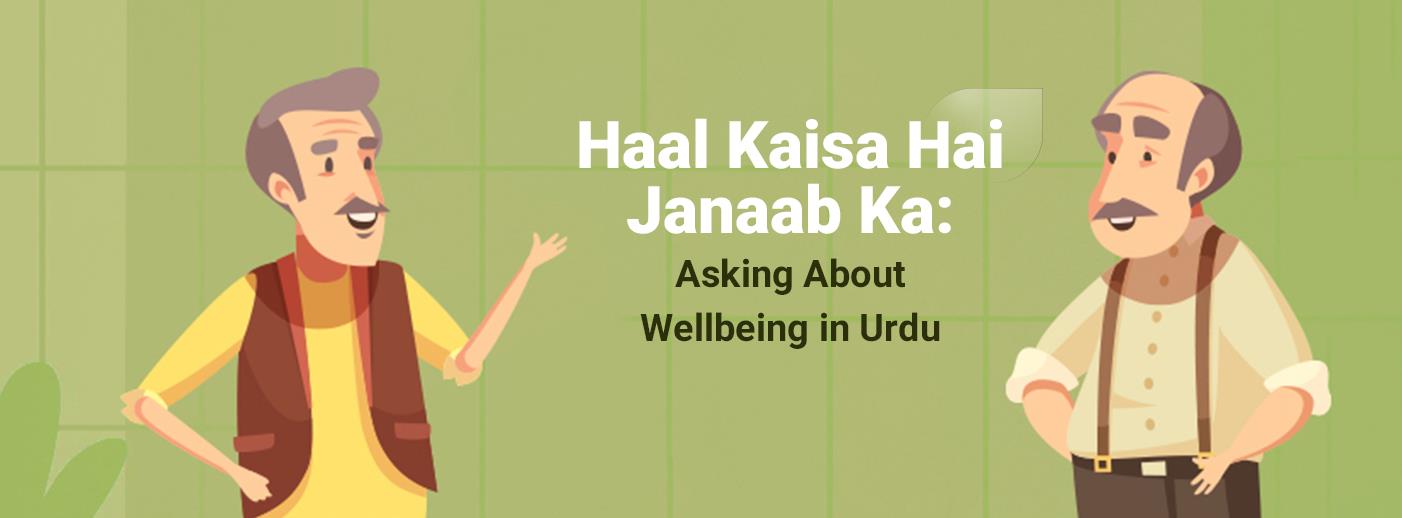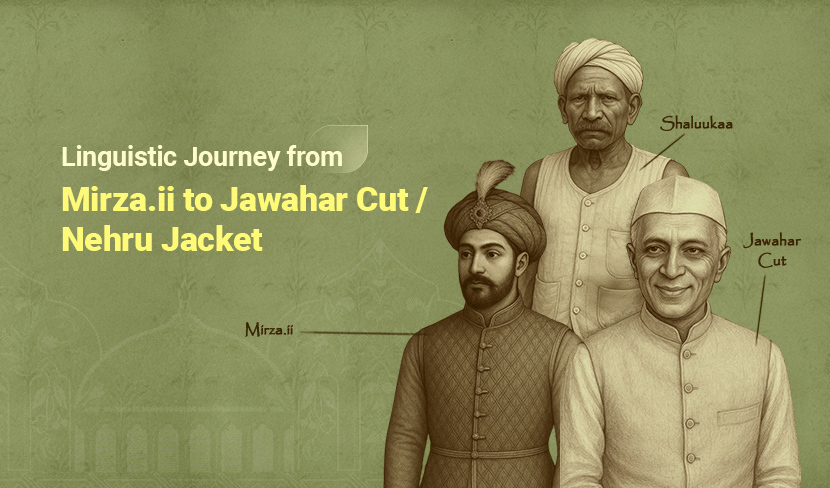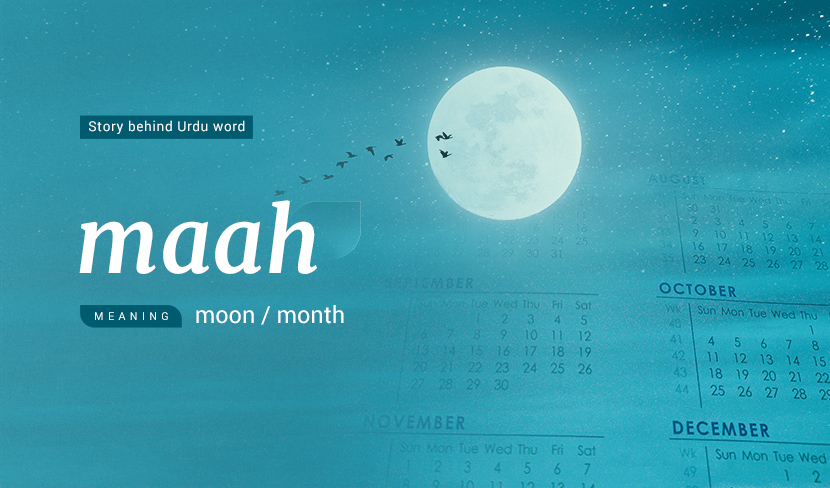Top searched
Saved words
khisyaanii billii khambaa noche
an embarrassed or ashamed person tends to vent his/her feeling by quarrelling
be-niyaaz
without want, free from want, wanting nothing, not in need, able to dispense, independent, carefree
Haal Kaisa Hai Janaab Ka: Asking About Wellbeing in Urdu

The world of how are you and how are things in Urdu is an entire category of conversation, with a dedicated vocabulary. This category is known as Mizaaj-Pursi which refers to enquiring about one’s wellbeing, and its response.
The term Mizaaj-Pursi is a composition of words from both Arabic and Persian. Originating from Arabic, the word ‘Mizaaj’ refers to the nature, temperament, mood etc. of an individual. The word Pursi is a version of the Persian verb ‘Pursish’ which means asking, enquiring, interrogating etc. (especially in context of enquiring about someone’s health or wellbeing).
And like the courteous and polished language that Urdu is, there are different phrases to make this enquiry in different settings. Be it a light-hearted meet-up with a friend or an earnest interaction with your manager, you can ask the same question in different manners. So, let us walk you through these phrases and tell you where they fit appropriately.
For informal and friendly chit-chats with friends and family, you can simply use phrases like mizaaj ba-khair? or mizaaj shariif? casually placing it after an exchange of greetings and salaams.
mizaaj achchaa hai? or sab khairiyat hai? are also very commonly used phrases by speakers, and these too, are very laid-back in their tone.
While conversing with elders and individuals superior in rank, the tone of this enquiry becomes additionally respectful and humble. So, instead of just placing a ‘sab khariyat hai’ post the salaam, we ought to be more mindful.
First of, it is highly recommended that when talking to elders and seniors, one should generally wait for the right moment to ask this question. If they are evidently disturbed or irritated, it is best to avoid asking the question at all.
And, if and when you manage to find the right time, you may very politely use phrases like mizaaj mubaarak? or mizaaj giraami? which denote more regard and civility one the querier’s end. Mizaaj muqaddas? also has a mannerly connotation and is suitable to use in conversations with elderly and seniors.
Now that we know all about asking the question, let us have a look at how to respond to it.
Replying to this query is generally similar if not the same, in tone, throughout all situations. And that is mainly because we’d want to be polite towards anyone asking about our wellbeing. Common replies are Alhamdullillah, Khuda kaa shukr hai and Alhamdullilah sab khairiyat hai. Just a tad bit on the courteous side is Aap ki dua se achche hain, adding a courteous undertone to your response.
Saying Alhamdullillah main ba-khairiyat hoon, aap kaise hain? is a good way to proceed with the conversation, by replying and asking them about their wellbeing, at once.
And, if you are meeting someone who is a family friend, or with whose family you are acquainted with, you may want to enquire about their family as well by asking Aap ke yahaan sab khairiyat hai? This small question will come off as a considerate one from your end.
The mannerisms in speaking Urdu are plenty, and these are just the conversation starters. We’ll come up with much more, until then, mizaaj durust rakhiye!
Delete 44 saved words?
Do you really want to delete these records? This process cannot be undone






